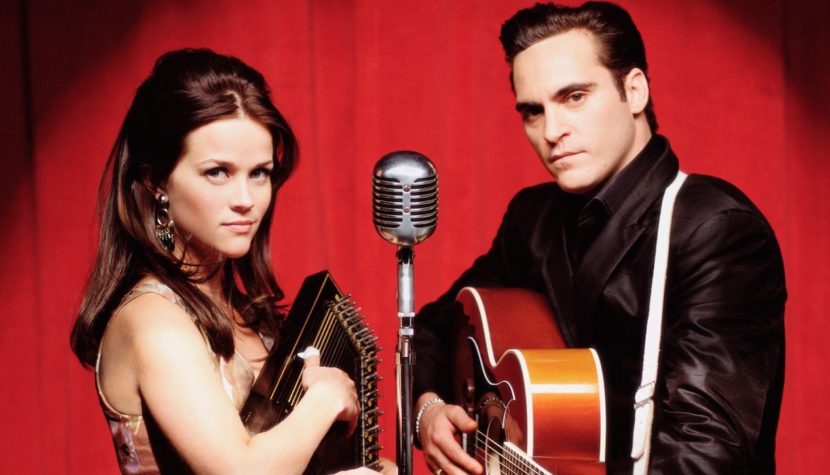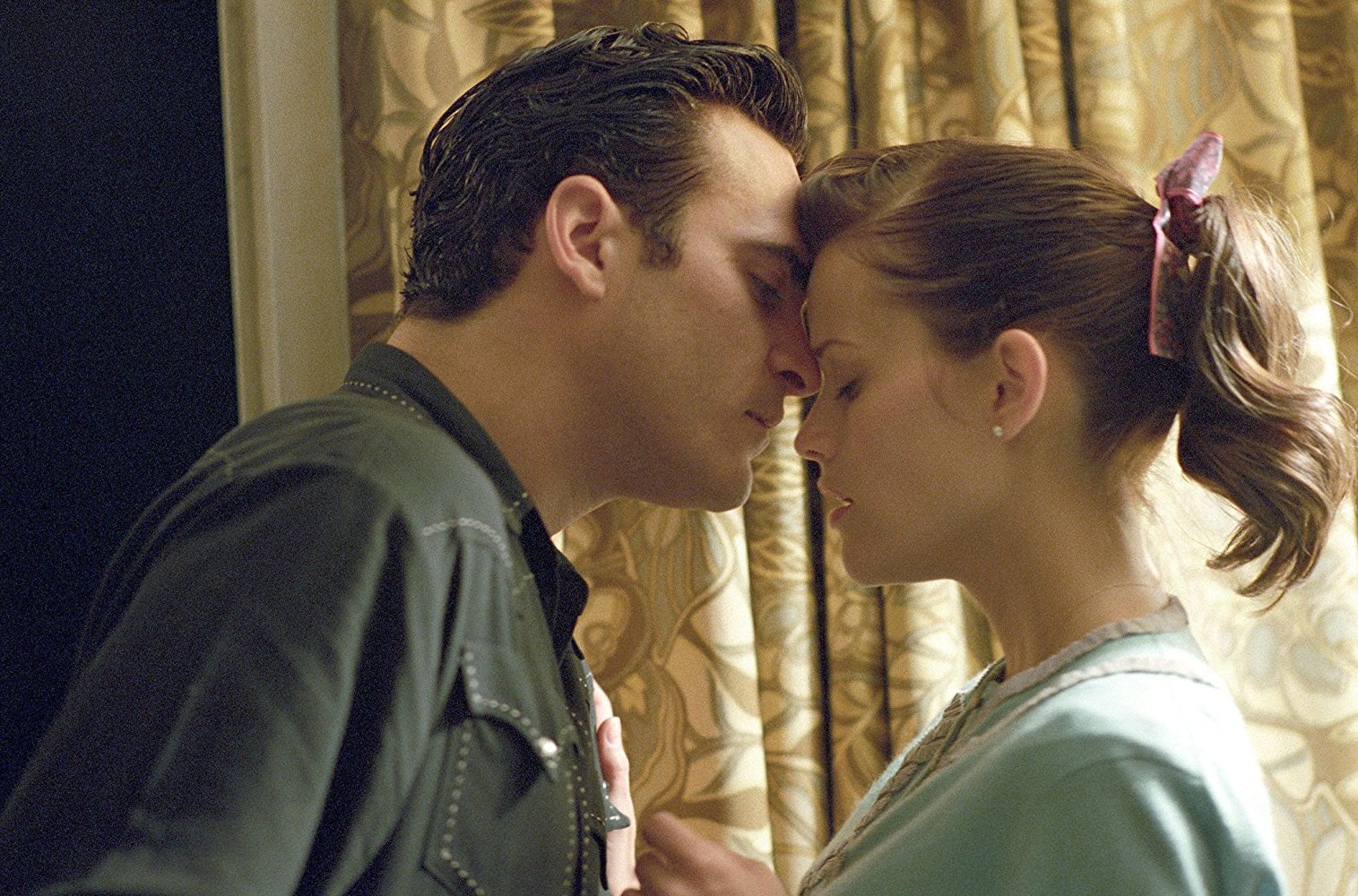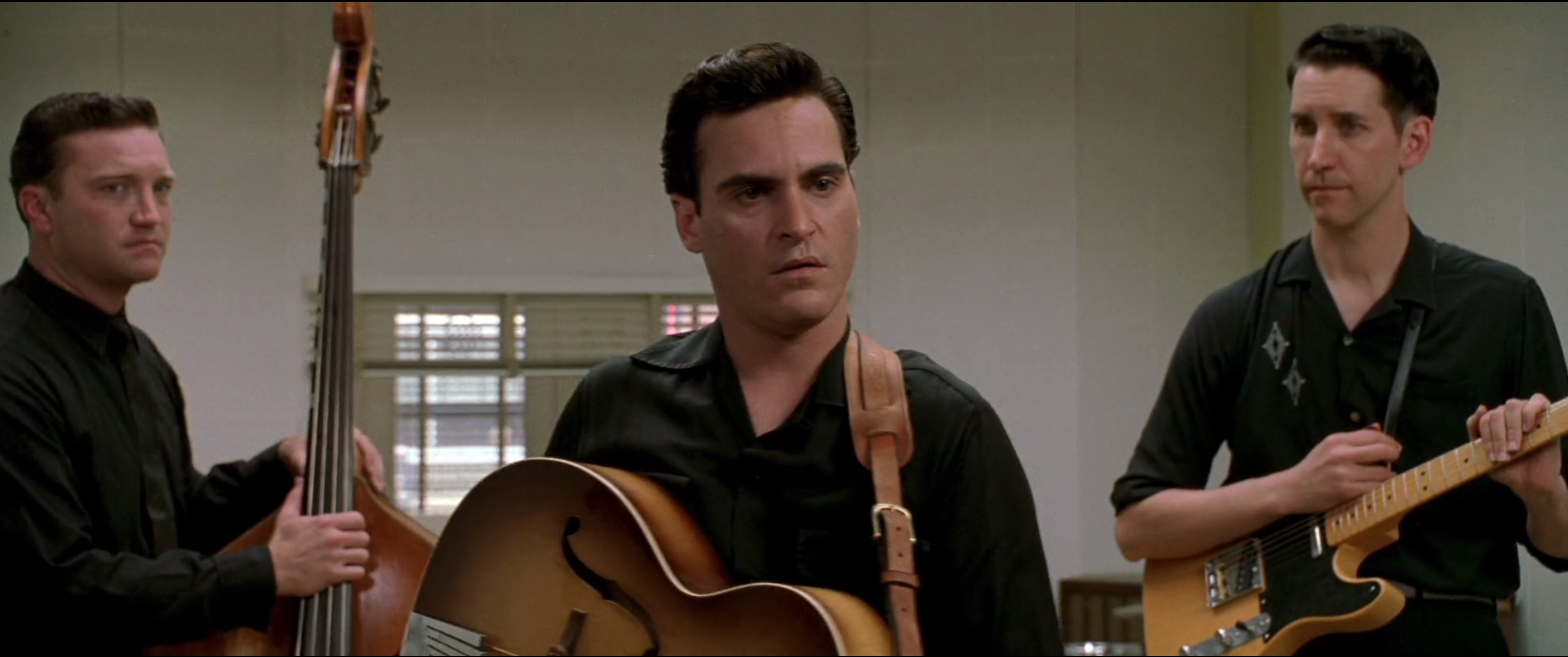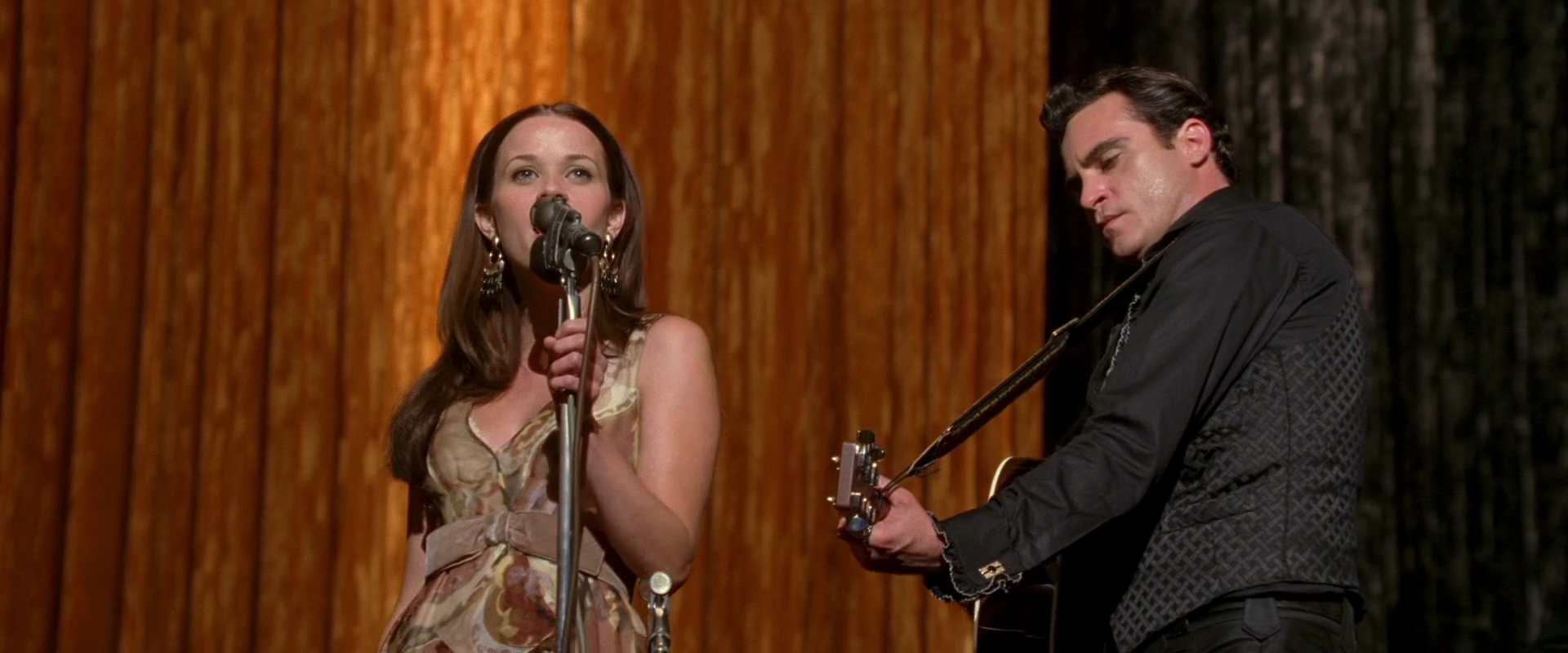WALK THE LINE. Joaquin Phoenix is outstanding as Johnny Cash

Johnny Cash once wrote a letter addressed to June Carter. He beautifuly said how lucky he was being able to share his life with such a beautiful woman. He emphasized that June fascinated him and inspired him, that she was an object of his desire and, above all, a reason he existed in the world. The letter was written in 1998, for Carter’s sixty-fifth birthday. They had been married then for almost thirty years.
It warms the heart to think that after such a long time Cash and Carter still loved each other and were as friendly as at the beginning of their adventure together. The archival recordings of their performances, by the way, are pure joy: even in the short films you can perfectly see all the affection they had for each other. With his eyes alone, Johnny expresses exactly what he would write to her in a letter many years later. She, with her smile, gives energy not only to her partner, but also to everyone in the audience.
In 2005, their acquaintance was taken up by James Mangold. The future creator of Logan focused on Johnny and June’s relationship, but also wove the singer’s career development into the whole thing – his ups, downs and relationships with loved ones. In one way or another, June had a hand in all of these aspects, so making their relationship the axis of the plot is entirely justified.

Walk the Line has an excellent pace. Mangold glides through scenes from Cash’s life very naturally. Beginning with his childhood and the tragedy that befell him at the time, through an episode in the army, he finally reaches the beginning of the musician’s career (and, consequently, the meeting of June) and how it affects his contact with his first wife and child. In order to properly accentuate the essence of the whole – in this case, the growing desire between Johnny and June – the actual events have been modified somewhat, but it works well and logically within the film. Mangold does not adjust the facts to present a sweet, romantic story. The growing love of two characters does not always have positive consequences.
Vivian, Johnny’s aforementioned first wife, appears in the story as an outsider victim of her husband’s actions. The beginnings of his musical path do not fill her with joy or pride. On the contrary, what is a success for Cash, she considers rather as a perpetual worry. While he is touring with musicians today treated as legends – Elvis Presley or Roy Orbison – Vivian has a house to keep and a child to raise, which she is most often left alone with. She preferred when they had less money, but formed a team. She can’t hide her grievances from Johnny, who in turn feels a lack of support and unpleasant arguments ensue. Johnny’s second conflict, this time with his father, has a different basis. In his eyes he has always been in second place, in the shadow of his brother, whose tragic death has only deepened the contempt felt by his dad. It doesn’t matter if Cash spends his youth on a farm, serves in the navy or is a musical star. He can never make his father feel even a shred of pride.

And suddenly June appears. The one who understands and appreciates him from the very beginning. Johnny can always talk to her and have a good time, especially since they often see each other on the road. They share the same passion. They both struggle with problems in their relationships. They seem made for each other, yet circumstances do not allow them to be together.
In developing Cash and Carter’s on-screen relationship, Mangold doesn’t do it on a “one thing led to another” basis. This is because, in addition to the already mentioned obstacles to coming together, there is the additional important issue of Johnny’s addiction. Naturally, it has a negative impact on both his relationship with his wife and his acquaintance with June. It only deepens the man’s poor condition. Cash is not justified here: he can behave nastily, and the director does not excuse him with a difficult childhood. At most, he points out that this is one factor in the musician’s escape into drugs. Rather, the episode with his addiction and slow decline is an opportunity to naturally portray June’s salutary influence on Johnny. She was a mainstay for him as they sang songs like Jackson and It Ain’t Me, Babe together. She helped him as much as she could in his battle with addiction, although this required a great deal of patience and forbearance. She became the friend he never had before. The deeper their friendship grew, the more his love for her grew. With reciprocity.

The perfect complement to the excellent direction and script is the pair of actors playing the main roles. Joaquin Phoenix with his acting makes us experience a range of emotions, so necessary in this story. We cheer for Johnny in his beginnings on the musical path. We stomp our feet during performances. We feel sadness watching him at his lowest. We rejoice as his friendship with June blossoms. It’s a fantastic role, full of nuance and magnetism. Reese Witherspoon, on the other hand, is charmingly feisty as June. There are excellent sparks between her and Phoenix, in view of which their on-screen relationship has solid support and is very believable. Not an easy role, but Witherspoon managed it – so well, in fact, that she was awarded an Oscar (it’s a pity Phoenix didn’t, but on the other hand to lose to Philip Seymour Hoffman in Capote is no shame).
Phoenix and Witherspoon both also contributed significantly to making the aforementioned musical performances sensational. Not only because of the staging, but also the fact that the actors actually recorded covers of Cash and Carter songs. The original songs are a piece of fantastic music, while the revamped versions take absolutely nothing away from them. In fact, they are just as good – or maybe even better? I leave that to your own judgment.
Mangold has wonderfully outlined this love story. The road to Johnny and June’s happiness was not strewn with roses. It required sacrifices, patience and – as brutal as it may sound – sacrifices. In the end, however, the couple walked the difficult road together and achieved the most important thing: they brought two soul mates together as one. They reached out to each other, letting love and friendship win. They transformed hardship into pure joy for the closeness of the other person. June Carter died in May 2003. Johnny less than six months later. I suppose the longing for his beloved was too much. Walking the line is easiest when you are belayed by the right person. Without it, it’s easy to lose your balance. Johnny did not want to walk alone.

